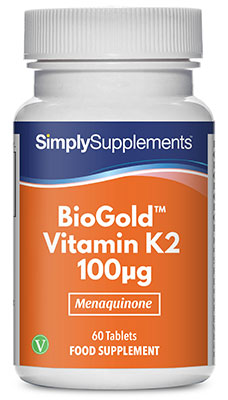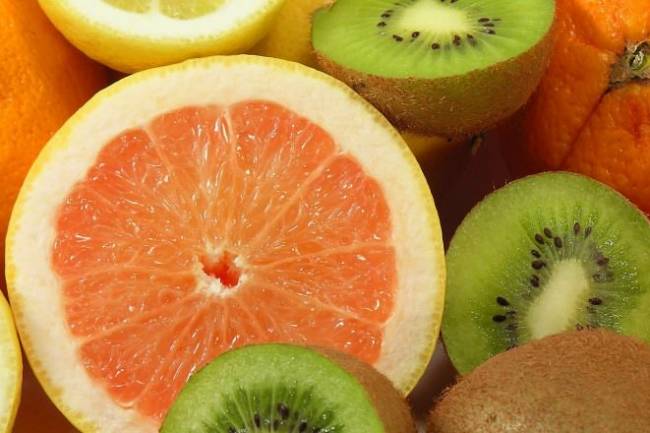Health Benefits of Vitamin K
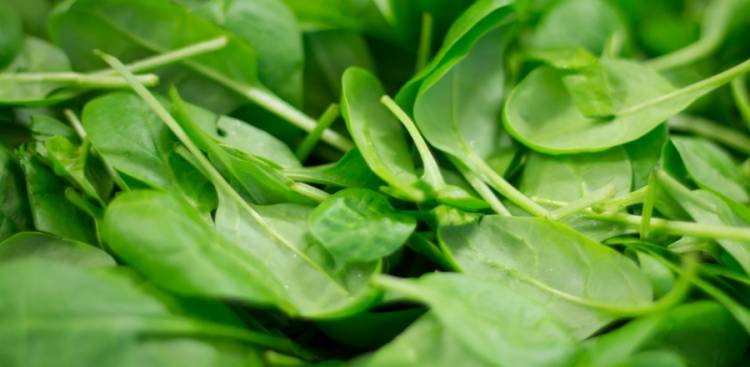
Vitamin K is nowhere near as well-known as many other nutrients, such as vitamins C and D. In fact, many people don’t even know that vitamin K exists.
All the same, as we’re going to discover, vitamin K is of vital importance to your body, and offers an impressive range of health benefits.
What Is Vitamin K?
Vitamin K is the final member of the fat-soluble vitamin quartet, sitting alongside vitamins A, D and E. Vitamin K was discovered in 1929 by a Danish scientist, who realised that it had an integral role in blood clotting – something known in the medical community as “coagulation”. These landmark findings were published in a German scientific journal, with the compound being referred to as “Koagulationsvitamin”. This, of course, is why the compound later became known as vitamin “K”.
Today, we know that vitamin K exists in numerous forms, with these having quite different roles in our health. Of these forms, there are the natural vitamins K1 (phylloquinone) and K2 (menaquinone), and a synthetic version known as K3 (menadione). Let’s look at each of these in turn...
Vitamin K1
Vitamin K1 is a key element of many plants as it has a role in photosynthesis. Generally the level of vitamin K1 found in plants is related to the level of chlorophyll, a dark green pigment. This is why dark leafy greens such as spinach are the best natural source of K1.
In a typical western diet, vitamin K1 makes up over three quarters of the overall vitamin K intake. A deficiency in K1 is very rare in adults because a healthy intake can easily be achieved through a balanced diet. Furthermore, the body can recycle vitamin K1 many times, meaning that a daily intake is unnecessary. K1 deficiency is more common in new born babies, where it can have life threatening consequences. Due to this, it is common practice for babies to receive a K1 injection shortly after birth.
As touched on earlier, the main role of vitamin K1 within the body is to help the blood clot normally, preventing excessive bleeding and bruising. This is because all the proteins that work together to initiate blood clotting are dependent on there being sufficient vitamin K1. The European Nutrient Reference Value (NRV) of 75 micrograms (µg) per day has been set due to this being a good amount to aim for to ensure healthy blood clotting.
Certain medical conditions require the administration of anti-coagulation drugs, otherwise known as vitamin K antagonists. These drugs attenuate the actions of vitamin K and in essence, thin the blood. Although drugs such as warfarin can be a great help to health, they also have their downsides, which we will explore later in the article.
Vitamin K2
To make matters slightly more confusing, vitamin K2 exists in various forms. But for the purpose of this article, we will focus on K2 in the forms of MK-4 & MK-7, the most promising types of this vitamin.
In the body, K1 can be converted in small amounts to K2 MK-4. Similarly, small amounts of MK-7 can be produced by gut bacteria, but this is widely accepted to not be sufficient for optimal health. MK-7 is only found in high amounts in natto – a popular Japanese dish of fermented soy beans – which is rarely available in the West. As a result of this, supplementation is the only viable option for most of us to consume an appreciable amount of MK-7.
Vitamin K2’s primary role in the body is the regulation of calcium. As we know, calcium is crucial for strong bones and teeth, as well as for muscle contraction. Simply ingesting sufficient calcium is not enough however: we need vitamin D to effectively absorb the calcium. Unfortunately, vitamin D just ensures we absorb the calcium; it does not channel the calcium into the correct areas. This is where vitamin K2 (and to a lesser extent K1) comes in.
Bone Health
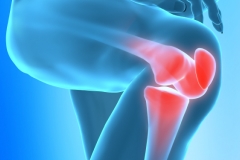 Many think of the skeleton as a dormant and rigid organ that is simply needed for movement. This is not true however, as our bones are in a constant state of turnover. Furthermore, our bones protect our vital organs and help to produce blood cells.
Many think of the skeleton as a dormant and rigid organ that is simply needed for movement. This is not true however, as our bones are in a constant state of turnover. Furthermore, our bones protect our vital organs and help to produce blood cells.
By having a good diet and performing sufficient exercise, this should ensure that we are somewhat protected from the loss of bone mass. As we touched on in the above section, calcium and vitamin D are of fundamental importance.
However, the lesser-known vitamin K also has a key role.
Although there is a relative lack of research into this area, there have been some impressive findings nonetheless. Research has shown that in older adults, those with high intakes of vitamin K are associated with a greater bone mineral density. In women of all ages, low vitamin K intake is linked to poor bone strength. Interestingly, those taking warfarin have less active vitamin K, and are therefore at a greater risk of suffering from bone fractures.
Although association studies like the one cited above can provide fascinating links, they cannot prove causality. Or in other words, they cannot prove that a greater intake of vitamin K leads to a higher bone mineral density. Fortunately, there have been randomised trials performed that can indeed prove causality.
One of these was a landmark study, published in 2000, that recruited almost 250 people with osteoporosis. These people either received vitamin K2 (MK-4) or a placebo. At the end of the 2 year study period, it was found that those receiving the daily dose of vitamin K suffered from significantly fewer bone fractures than those in the placebo group. Furthermore, those taking a placebo lost bone mass at a significantly faster rate than those taking the vitamin K2.
Although those taking the K2 failed to see an increase in their bone mineral density, the researchers believe that the decreased prevalence of fractures was down to how vitamin K2 improved the quality of bones.
To complement these findings in vitamin K2 (MK-4), similar results have been seen but this time using vitamin K1. For this study, a total of 440 postmenopausal women with osteoporosis were recruited, and randomly assigned to receive vitamin K1 daily for 2 years or a placebo. After the end of the study period it was found that the placebo group experienced more than double the number of bone fractures when compared with the vitamin K group. Supplemental vitamin K was also well-tolerated, as there was a lack of adverse effects.
Another study into the effects of vitamin K2 on the bone health of postmenopausal women reported positive findings. This time using the MK-7 form, it was found that consuming this nutrient daily for 3 years led to a significantly greater maintenance of bone strength when compared to the group who received a placebo. These results and the findings of other studies suggest that vitamin K1 and K2 (MK-4 & MK-7) are all beneficial for the health of the bones.
Those who take vitamin K for bone health would be wise to ensure they have sufficient levels of vitamin D as well. Research has consistently highlighted the synergistic nature of these two essential nutrients. One study in particular showed that in postmenopausal women with osteoporosis, vitamin K was effective at increasing bone mineral density. However, the combination of vitamin D and K was far superior, as the women saw an extra 5% increase in this marker of bone health.
Cardiovascular Health
 Cardiovascular disease is still the leading cause of mortality worldwide, accounting for around a third of all deaths each year. One of the hallmarks of CVD is stiff, inflexible arteries that are caused by calcium build up, or calcification. This inevitably leads to the narrowing of the arteries, heightening the risk of heart attacks and strokes. Because vitamin K can effectively shuttle calcium into the teeth and bones, this automatically results in there being less in undesirable locations, such as soft tissues and arteries.
Cardiovascular disease is still the leading cause of mortality worldwide, accounting for around a third of all deaths each year. One of the hallmarks of CVD is stiff, inflexible arteries that are caused by calcium build up, or calcification. This inevitably leads to the narrowing of the arteries, heightening the risk of heart attacks and strokes. Because vitamin K can effectively shuttle calcium into the teeth and bones, this automatically results in there being less in undesirable locations, such as soft tissues and arteries.
There are numerous published studies that show that a high vitamin K2 (but not vitamin K1) intake is associated with a lower risk of cardiovascular disease. The studies indicate that compared to those with a low K2 intake, those with a higher intake reduce the relative risk of developing heart disease by 20-40%. However as we found earlier, these studies cannot prove causality.
It is a good job then that there have been multiple randomised control trials specifically looking at the impact of vitamin K2 on heart health. In the previous section we discussed how a group of postmenopausal women who took K2 MK-7 daily for 3 years saw a much greater maintenance of bone health compared to placebos. Well that wasn’t all. These women also had the health of their arteries assessed and it was discovered that those taking vitamin K2 decreased arterial stiffness. It was also found that the stiffer the arteries, the greater the benefit.
As we touched on earlier, many people worldwide are prescribed anticoagulants such as warfarin, to decrease blood clotting. Unfortunately, there is now research to suggest that this type of medication doesn’t just increase the risk of bone fractures.
Numerous investigations have shown that this leads to quite substantial calcification in key arteries surrounding the heart. This is due to anticoagulants decreasing the actions of vitamin K-dependant proteins, meaning that calcium can end up in some undesirable locations. Not only does this provide further evidence of vitamin K2’s effect on cardiovascular health, it has also stimulated further research into ways to negate this quite serious side-effect.
To conclude this section, we will once again touch on the topic of vitamin D. Not only does vitamin D have a synergistic role with vitamin K in regards to bone health; this duo of fat-soluble vitamins also seems to work together to support heart health. This is thanks to research which has shown that taking vitamin D and K together was more effective for the condition of the arteries than taking them alone. As vitamin D and K2 are consumed in relatively low amounts in a typical western diet, supplementation is a cost-effective way of supporting bone and heart health.
Vitamin K3
The third and final type of vitamin K is the synthetic vitamin K3. Unfortunately, vitamin K3 does not possess the benefits of K1 & K2 and has actually been shown to be detrimental to health in some cases. Vitamin K3 was once the form used to treat deficiencies in infants, but there were instances of liver toxicity, jaundice and damage to blood cells. For this reason, it is now only used in animal feed for species that have the ability to safely transform vitamin K3 into K2.
How Much Vitamin K Should I Take?
As vitamin K is an essential nutrient, it may come as a surprise that there are relatively few studies that have investigated what the optimal dosage is. The main reason behind this is because vitamin K deficiency is very rare in well-nourished individuals. As we touched on earlier, our body can recycle vitamin K many times meaning daily intake is not required. However, regular intake is of course necessary.
With regards to vitamin K1, the current recommendations are between 75µg to 120µg per day depending on the country you are from. This is based on studies that show this amount is effective for healthy blood clotting. However, recent leading experts have stated that they believe this range is too low and that we should consume more. Fortunately, an intake of 200µg is still easily achievable through the diet.
For vitamin K2 in the MK-4 form, the research on the whole has used very high doses. Numerous investigations have used 45mg per day, which is 45,000µg. However, there have been positive findings with a dose of 1.5mg daily. Hopefully future research can discover the minimum effective dose of K2 MK-4. With studies that have shown a benefit of K2 in the form of MK-7, we can confidently say from the evidence that a dose of 150-200µg per day is a good range to aim for.
What Are Good Sources of Vitamin K?
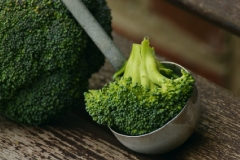 When it comes to vitamin K1, dark green vegetables are the best source. For example, a 100g portion of kale will provide 440µg, and the same serving size of spinach, broccoli and cabbage contains 360µg, 180µg and 145µg respectively. As vitamin K is fat-soluble, it is recommended that these vegetables are consumed with a fat source. A knob of butter melted on top of these foods would be a tasty and effective way to aid vitamin K absorption.
When it comes to vitamin K1, dark green vegetables are the best source. For example, a 100g portion of kale will provide 440µg, and the same serving size of spinach, broccoli and cabbage contains 360µg, 180µg and 145µg respectively. As vitamin K is fat-soluble, it is recommended that these vegetables are consumed with a fat source. A knob of butter melted on top of these foods would be a tasty and effective way to aid vitamin K absorption.
As only a few portions of green vegetables per week are needed to ensure sufficient vitamin K1, this is why deficiency is very rare. Remember, the body can also use the same vitamin K numerous times.
In contrast, obtaining sufficient vitamin K2 through the diet is certainly more challenging. Natto is the only vegan source of K2 (MK-7), and two portions per week would be sufficient to satisfy K2 requirements for heart and bone health.
However, this dish is not frequently eaten outside of Japan.
Animal sources such as meat, eggs, butter and cheese provide small amounts of vitamin K2 (MK4 or MK7 depending on the food), but it would be extremely difficult to obtain enough through food. For this reason, a supplement is a highly popular, convenient and effective way of meeting K2 requirements.
When taking a K2 supplement, it is best to take alongside a meal containing fat for optimal absorption. For added benefit, many choose to consume a K2 supplement alongside 25-50µg (1000-2000 IU) of vitamin D3 per day.
What Are the Side Effects of Vitamin K Supplementation?
Fortunately, in healthy individuals there is no evidence of side effects from vitamin K1 or K2 supplementation, even in very high doses. As there is no evidence of toxicity, the Food Drug Administration (FDA) and the European Food Safety Authority (EFSA) have not set an upper limit for vitamin K intake.
There is also zero evidence in healthy people that a high intake of vitamin K1 leads to excessive blood clotting. That being said, those on anti-coagulation medication such as warfarin should avoid supplementation and dishes such as natto unless advised otherwise by their doctor. This is because even modest amounts of K1 and MK-7 can impair the action of anti-coagulation drugs.
Summary
Hopefully this article and others will help improve your knowledge with regards to vitamin K. As we have found, the health benefits of this essential nutrient mean that it is worthy of more attention than it is currently receiving.
As we have gone quite in-depth with some key scientific information in this article, we thought best to summarise the main points in these take-home messages:
- Vitamin K is the name given to a group of fat-soluble compounds which are essential to health. Discovered almost 90 years ago due to its role in blood clotting, vitamin K is now known to also support bone and heart health.
- Vitamin K comes in various forms with there being K1 (phylloquinone) and numerous types of K2 (menaquinone). K2 MK-4 and MK-7 are the most researched with the proven health benefits. The synthetic vitamin K3 (menadione) is no longer used in humans.
- All forms of vitamin K positively impact blood clotting, bone health and heart health to varying degrees. The current evidence suggests that K2 MK-4 is the best choice for bone health, with K2 MK-7 being the best for blood clotting and heart health.
- For vitamin K1, a dose of 75-200µg daily is widely accepted to be sufficient. Similarly, benefits to heart and bone health have been consistently seen with a K2 MK-7 intake of 200µg per day. For K2 MK-4, much higher doses of 1.5-45mg daily have been used.
- Dark leafy greens represent the best source of vitamin K1, with kale, spinach, broccoli and cabbage being particularly good. Although the body has the capacity to create small amounts of vitamin K2, this is widely accepted to be not enough to experience health benefits. As there is very little found in a typical diet, supplementing with K2 is commonplace.
- Vitamin D holds a synergy with vitamin K, as both nutrients support strong bones and a healthy heart. For the best benefit, take a dose of vitamin D in the range of 25-50µg per day.
- Vitamin K1 & K2 supplementation is very safe in healthy individuals and there is currently no evidence of toxicity, even in extremely high doses. However, high vitamin K intakes are not advised for people on anti-coagulation drugs. As always, it is recommended that you seek medical advice from your healthcare professional if in doubt.
Shop for Vitamin K Supplements Here.
Sources:
https://www.ncbi.nlm.nih.gov/pubmed/21394493/
https://www.ncbi.nlm.nih.gov/pubmed/21447413/
https://www.ncbi.nlm.nih.gov/pubmed/10750566/
https://www.ncbi.nlm.nih.gov/pmc/articles/PMC5413254/
https://www.ncbi.nlm.nih.gov/pmc/articles/PMC5726210/
https://www.ncbi.nlm.nih.gov/pubmed/11886767
https://www.ncbi.nlm.nih.gov/pubmed/18922041/
https://www.ncbi.nlm.nih.gov/pubmed/23525894
https://www.ncbi.nlm.nih.gov/pubmed/19179058
https://www.ncbi.nlm.nih.gov/pubmed/18722618
https://www.ncbi.nlm.nih.gov/pubmed/15514282
https://www.ncbi.nlm.nih.gov/pubmed/25694037
https://www.ncbi.nlm.nih.gov/pubmed/16169351/
https://www.ncbi.nlm.nih.gov/pmc/articles/PMC3321262/

 Matt
Matt 



